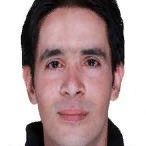
Ali Anwar Brohi
Work place: School of Power Engineering, Harbin Institute of Technology Harbin, 150001, China
E-mail:
Website:
Research Interests: Engineering, Computational Engineering
Biography
Ali Anwar Brohi received B.S. degree in Mechanical Engineering from Mehran University of Engineering and Technology, SZAB Campus, Khairpur Mir’s, Sindh, Pakistan in 2010 and MS degree in Mechanical Engineering from Harbin Institute of Technology, Harbin, China in 2015. He is currently working toward a Ph.D. degree in the School of Energy Science and Engineering at Harbin Institute of Technology, Harbin, China. His research interests include entropy generation, heat transfer and fluid dynamics.
Author Articles
Comparison of Fog Computing & Cloud Computing
By Vishal Kumar Asif Ali Laghari Shahid Karim Muhammad Shakir Ali Anwar Brohi
DOI: https://doi.org/10.5815/ijmsc.2019.01.03, Pub. Date: 8 Jan. 2019
Fog computing is extending cloud computing by transferring computation on the edge of networks such as mobile collaborative devices or fixed nodes with built-in data storage, computing, and communication devices. Fog gives focal points of enhanced proficiency, better security, organize data transfer capacity sparing and versatility. With a specific end goal to give imperative subtle elements of Fog registering, we propose attributes of this region and separate from cloud computing research. Cloud computing is developing innovation which gives figuring assets to a specific assignment on pay per utilize. Cloud computing gives benefit three unique models and the cloud gives shoddy; midway oversaw assets for dependable registering for performing required errands. This paper gives correlation and attributes both Fog and cloud computing differs by outline, arrangement, administrations and devices for associations and clients. This comparison shows that Fog provides more flexible infrastructure and better service of data processing by consuming low network bandwidth instead of shifting whole data to the cloud.
[...] Read more.Other Articles
Subscribe to receive issue release notifications and newsletters from MECS Press journals